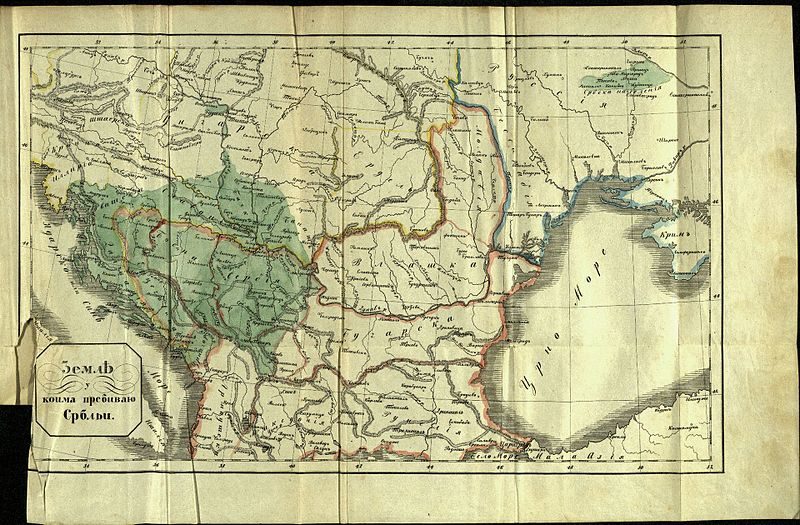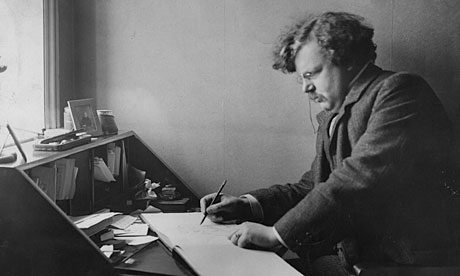Why on earth should we save languages? They’re terrible things, spiteful things, always pouring out of our mouths and into the world, where they cause nothing but pain and suffering. How much time do we waste teaching our children to speak, when we could be spending our time more wisely – tending to the garden, or mainlining heroin? And surely there are too many of them, too many to make sense, just another divine punishment as if the other punishments were not enough. If we lost one, or two, or five thousand, would anybody really care?
from “My Very Strange Dream About Language”
Imagine this: you wake up tomorrow morning and Torlakian has disappeared. Suddenly all Torlakian speakers will have to speak Serbian, or Bulgarian, or whatever other language they already speak apart from the cluster of dialects that linguists have decided constitute Torlakian. UNESCO says that’s 1.5 million people, but when you look at their source that number is just the “Population figure for the core language area”, i.e. everybody who happens to live in that area that linguists have decided is where Torlakian-speakers live. That’s not a small number of people, but it doesn’t seem like a huge loss.
It’s hard to know even what kind of loss it is. Are we losing something of that cultural diversity which is “the common heritage of humanity”, as per Article 1 of the UNESCO Universal Declaration on Cultural Diversity of November 2001? So much of the common heritage of humanity has been lost already in the various apocalypses, bottlenecks and catastrophes that regularly beset us, but it’s rare that any of us feel those losses viscerally, any more than we feel the loss of a species of spider viscerally. These are losses which we have to be taught to feel, rather than those which come without bidding.
Once we have been taught it, however, that loss is real. It’s not something that is amenable to evidence, any more than the loss of a parent is amenable to evidence – what kind of evidence would we provide to take away the sting of that loss? And unlike the death of a parent, that loss is cumulative; the loss of a single language may not be that meaningful by itself, but as loss piles upon loss, it is clear that something is happening that has dire implications. We might shrug our shoulders at the loss of Torlakian, but if the situation was reversed, and all other languages except Torlakian disappeared overnight, we would all agree that this was not a desirable outcome. (Except possibly native Torlakian speakers.)
Once the shock had passed, the efficiency gains would be unimaginable. Yet if you are like me, those efficiency gains don’t seem to be worth that loss; in fact it seems strange to think of that loss in terms of efficiency gains at all. This is an intuitive response for which we might look for post hoc rationales, but that intuitive response shows us where our priorities are. If we take this thought experiment further, and imagine that this winnowing of languages down to one was imposed by force by a great dictator, precisely in the cause of those efficiency gains; again, if you are like me, you probably believe that it would be an act of tremendous violence to eliminate all the world’s languages, even if no actual violence were used.
This principle seems to hold true even if we reduce the number of languages in the thought experiment. There is an inescapable violence to the death of a language, when that death is brought about by some clear decision, whether that decision actively seeks to destroy the language or simply creates the conditions in which that language cannot survive.
UNESCO presents an Atlas of the World’s Languages in Danger, which tells me that “At least 43% of the estimated 6000 languages spoken in the world are endangered”, and a Strategy for the Safeguarding of Endangered Languages, which has limited practical guidance beyond making those languages available on the web, but whose own website ironically returns “404 Page not found”. Annex II outlines an action plan for implementation of the Declaration, one item of which is “Safeguarding the linguistic heritage of humanity and giving support to expression, creation and dissemination in the greatest possible number of languages.” But why should an intergovernmental body such as UNESCO pay attention to this?
There’s the obvious answer, which is that if cultural diversity is the common heritage of humanity, the greater that diversity, the richer that heritage. You don’t have to agree with those who believe that the disappearance of any language is an unutterable loss to find this argument appealing, since it seems obvious that diversity does have inherent value to us. A world which was filled with only one of each thing – one colour, one taste, one sound – would not be a Platonic ideal but an incomprehensible hell; we and other living beings are only able to make sense of the world through differentiation.
If you accept this premise, it’s easy to extend it to words – having multiple words is what makes communication possible – and then to languages – having multiple languages is the obvious evolutionary outcome of that diversity. There is however a question about whether diversity has any intrinsic value regardless of how it arose, as per Thomas Wells:
First, if diversity were valuable in itself then you should not only believe that a world with 9,999 species would be worse than one with 10,000. You should also believe that, ceteris paribus (other things being equal), a world with 10,001 different species would be better, 10,002 would be even better, and so on. In other words, if diversity is intrinsically valuable then you should want to not merely prevent the loss of existing kinds, but deliberately produce more species (which shouldn’t be particularly complicated or expensive, especially for simpler organisms). Failing to produce more of a good thing is bad in just the same way as failing to prevent the loss of a good thing.
from “Diversity Has No Intrinsic Value: A World With Fewer Species or Languages Would Not Necessarily Be A Worse One”
I suspect that the kind of diversity that we are talking about when we discuss language is not really the same kind as when we discuss ecology; but if it was, this argument has a serious flaw. It is not obvious that a desire to protect extant diversity leads to a belief that increasing that diversity is inherently good, because ecological diversity is not assessed in terms of number of species (i.e. quantitatively) but in terms of relations between species (i.e. qualitatively).
Because Wells does not recognise this, his conclusion bears no relation to how we actually assess species loss. He concludes that “you ought to be indifferent to the particular items which make up the set and whether they survive. You should prefer a world in which one existing species was destroyed but two new ones came into existence to a world in which the original 10,000 species persisted.” But the reason why ecologists are concerned by the loss of species is not solely in terms of the fate of that species itself – although that is a valid and often-expressed sentiment, particularly for megafauna – or a change in the total number of species, but often and more urgently because of the role that species plays in the ecosystem. This analogy is therefore not a strong argument against preserving diversity.
In any case UNESCO is not concerned with ecology, so this doesn’t get us any closer to answering the question of why UNESCO is involved. The useful answer is less likely to lie in UNESCO’s mandate towards culture, and more likely to lie in where that mandate comes from: the “inter-governmental” part of the description of UNESCO; this initiative, and the Declaration that it is derived from, are aimed at governments. This leads to another question; why should governments care about language?
Peter Wells (I assume no relation to Thomas, above) writes that
the apparently liberal project of saving endangered languages is not as liberal as it first appears. Achieving the preservation of living languages, insofar as it is possible at all, would involve bringing at least some pressure upon children of minority racial groups in developing countries to sacrifice a certain amount, perhaps a large amount, of their opportunity to engage with the wider world represented by the major world languages and their associated arts and sciences.
from “Saying The Unsayable About Saving The Unsavable”
This argument rests on a description of language preservation which I do not recognise, and for an outcome for which there doesn’t seem to be any evidence. For if the children of minority racial groups are disadvantaged by speaking their own language – and let us leave aside the fact that an alternative view might see those children gaining an advantage through speaking multiple languages – then how does that disadvantage arise? Wells points out that “we are right to be outraged when alien oppressors prevent a community from using its mother tongue” but concludes that “the appropriate liberal response to language decline, in my view, is not to oblige people to use what we consider to be their ‘correct’ language, but to allow them to use the language they want to use.”
The entity that is responsible for either “obliging” or “allowing” specific languages goes unnamed in Well’s article, but there is only one possible candidate: the state. States care deeply about language. States require language in order to exist – not just in the sense that people need to be able to communicate in order to form states, but that states always and everywhere must decide how those people communicate. States therefore select an official language of government, and provide support to that language through state mechanisms; they occasionally select more than one official language, and invest in supporting all of them. This apparently innocuous decision is where violence creeps in.
The fate of many languages in the modern era is not that they die a natural death, but that their death is the result of deliberate policies, as described by Rebecca Roache:
Extinct and endangered languages have not, on the whole, become extinct or endangered gently, by subsequent generations choosing freely to switch to a more dominant language. The history of language death is a violent one… It would, then, be difficult to embrace a lingua franca without harming speakers of other languages. In addition, if we were serious about acting justly, it would not be enough merely to abstain from harming communities of minority language speakers. Given the injustices that such communities have suffered in the past, it might be that they are owed compensation. This is a view commonly held by minority-language campaigners. It is debatable what form this compensation should take, but it seems clear that it should not include wiping out and replacing the local language.
from “The death of languages”
Like Wells, Roache also does not explicitly name the state as the agent of language extinction or compensation; although it is implied, a large part of the problem is that we do not point the finger at the state except in the most egregious cases of human rights abuse. A focus on the utility of language, and Wells’ claim that languages die out at least partly because they become less useful, obscures the fact that they become less useful as the result of state policies. Those policies might be more or less hostile to the language itself, but in terms of desired outcome is there much difference between the Turkish state’s attitude towards Kurdish and the British state’s attitude towards Welsh, apart from timescale?
… because that the People of the same Dominion have and do daily use a speche nothing like, ne consonant to the natural Mother Tongue used within this Realm, some rude and ignorant People have made Distinction and Diversity between the King’s Subjects of this Realm, and his Subjects of the said Dominion and Principality of Wales, whereby great Discord Variance Debate Division Murmur and Sedition hath grown between his said Subjects;…
from “Laws in Wales Acts 1535 and 1542”
An argument as to why we should save languages from extinction comes into earshot: these are not “natural” deaths, but the result of specific policies, and if we care about the people who speak those languages, we should defend them from those policies. Language rights are human rights; the disappearance of a language is a defeat in the struggle for human rights, and a capitulation to state power that should offend anybody except those who believe the state is always right, and always to be obeyed even when it is not right. We should press the state to implement policies, not necessarily to save specific languages, but to create the environment which makes the survival of languages possible – simply because in the long run that is a better environment for all of us.



